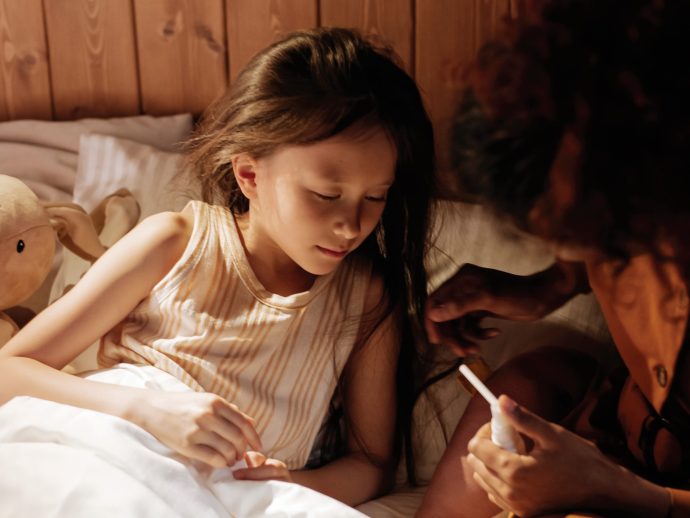Helping your kids through infections
In the wake of a surge of respiratory infections, parents are looking ahead with some trepidation and wondering how we can best support our kids. Dr. Caroline Meyer, a naturopathic doctor with a passion for pediatric medicine, shares her strategies for surviving the upcoming virus season.
Virus basics
Unlike bacteria, viruses lack their own cellular structure. Viruses are simply strands of genetic material that hijack other cells to drive ongoing replication and spread. Antibiotics are completely ineffective against viruses.
Antiviral medications do exist for the flu, RSV, and COVID-19 but benefit only those at high risk of complications. For most people, our immune systems are the ones doing the heavy lifting of clearing infection and restoring health. Supporting immune function is the key to coping with viral infections.
Avoid going viral
Meyer highlights the importance of healthy habits, mental health, and nutrient testing for infection prevention.
Sleep
Sleep has a significant role in immunity. Bedtime screen use disturbs sleep, and poor sleep can lead to more infections. Reinforcing bedtime routines and limiting nighttime access to devices can build immunity.
Movement
Movement is the perfect immune system primer. In a study of preschoolers, kids moving less had more frequent and more severe infections. Exercise also improves sleep quality, providing indirect but important immune effects. Get kids (and yourself) out and moving daily.
Diet
Diet matters. Children who eat more fruits and vegetables get fewer infections.
Mental health
Emotional distress impairs the immune system and has impacts on food choices, sleep patterns, and exercise. Reach out for support if mental health challenges are present in your family.
Nutrient deficiencies
Nutrient deficiencies can undermine immunity. Low stores of iron and zinc can also reduce resistance to infection. Get your kids checked for deficiencies if they’re having recurrent infections.
When to get help
While many infections can be managed at home, urgent care is needed in the following cases.
- difficulty breathing or blue lips
- dehydration (not urinating, dry lips)
- pain that doesn’t improve with medication
- seizure
- fever in kids 12 weeks or younger
If your parental spidey-senses tell you that something is not right, take your child to hospital.
Want more immune support?
Talk to your health care practitioner about these supplements.
| Supplement | Best form for kids | Actions |
| vitamin D | drops | deficiencies are associated with higher infection rates and longer/more severe illnesses |
| probiotics | powder or liquid | can prevent diarrhea associated with antibiotic use; may reduce duration of colds |
| zinc | lozenges | reduces number of ear infections and speeds recovery |
Take action against viruses!
- Wash, wash, wash your hands. Handwash before eating, after bathroom use, and on return from outside your home.
- Stay home when sick. Keep your cold to yourself!
- Cover nose and mouth when sneezing. Use a tissue or sleeve.

